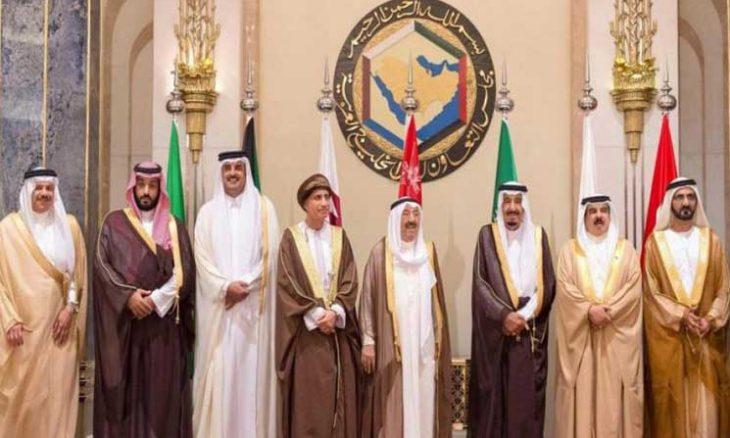Riyadh: Saudi Arabia is seeking to reach a settlement to end the Gulf crisis that has been going on for more than three years, but a comprehensive solution remains elusive despite the willingness to make concessions, according to sources close to the negotiations on the dispute file.
The Saudi Foreign Minister, Prince Faisal Bin Farhan, had said last week that his country's allies were "on the same track" with regard to solving the Gulf crisis and expected that a final agreement would be reached soon.
This comes at a time when the Gulf States are preparing for the appointment date of the American president-elect, Joe Bac, who would welcome a solution to the dispute that would undermine the US efforts to face Iran in the strategic Gulf region.
Saudi Arabia and its allies the Emirates, the two seas and Egypt severed relations with Qatar in June 2017 and prevented it from using its airspace, accusing Doha of financing extremist Islamic movements, which Doha strongly denies. It also blamed her for her great closeness to the Islamic Republic.
Well-informed sources in the negotiations say that the countries boycotting Qatar under the leadership of Riyadh are ready to ease their demands considerably in the final agreement.
A source close to the Saudi government pointed out that Saudi Arabia was ready to make concessions by opening its airspace to Qatari planes in case Doha stopped financing its political opponents and restrained its mass media.
“Saudi Arabia is pushing in this direction, and Saudi Arabia holds the key which is airspace”, he said.
The crisis has resulted in the severing of transport links and the separation of families, and has cost billions of dollars in losses in the areas of investment and trade, and has caused damage that the economies of the Gulf States may not be able to bear as they seek to get out of the new Corona virus crisis.
On Tuesday, the Emirates and Egypt expressed their support for resolving the dispute. However, a source close to Saudi Arabia pointed out that the UAE, which is a strong opponent of Qatar, resists this.
According to the source, “The anger of the Emirates cannot be allowed to keep this fire burning”, stating: “It is time to end this crisis”.
“Limited scope” agreement
On the other hand, another source in the Gulf who is close to the negotiations file said that the process currently led by the Kingdom might lead to some kind of peace, but it would not solve all basic issues.

The final agreement is likely to be a joint document setting the terms, and will most likely resemble the 2014 Riyadh Agreement between Qatar and the Gulf States, a secret agreement believed to have called for non-interference in other countries ’ affairs.
According to a Western diplomat in the Gulf, mediators from Kuwait are pushing towards convincing the three main leaders – Abu Dhabi Crown Prince Sheikh Mohammed bin Zaid Al Nahyan, Saudi Crown Prince Muhammad bin Salman, and Qatar ’ s Sheikh Tamim bin Hamad Al Thani.
He had agreed with the three leaders, explaining that, despite opposition from the United Arab Emirates, the Crown Prince of Abu Dhabi was “closely involved” in the process.
He explained, "We are looking for a possible temporary solution within a few weeks. I don't think anyone expects a complete solution. Everyone is very warm in the wording of the statement. ”
Diplomats in Doha quoted a senior Qatari official as saying that the final agreement was “agreed in principle” but “limited in scope”.
They noted that the official explained that Saudi Arabia does not want to announce the agreement before the end of Donald Trump's rule, most likely with the aim of registering a positive point with the Bashkar administration, who vowed to reevaluate the ties with Riyadh on the basis of its record in the field of human rights.
This led the United States to lift the closure of its airspace before Qatari aircraft, which forced it to change the course of its flights to pass over Iran, which was reported to have received $100 million annually, thus undermining the American efforts to put economic pressure on Tehran.
“Core” differences
There are already indications that the media in Qatar and Saudi Arabia are synthesizing their tone.
He pointed out, however, that “there must be a mechanism to ensure that we learn from experience, not to repeat it, because differences are fundamental, existential, and not just differences that end in good faith”.
The real indicator will be the level of Qatari representation at the GCC summit expected to take place before the end of this year, the location of which has not yet been determined. The presence of the Emir of Qatar will be an indication of a closeness.
The enclosure, designed to stifle Qatar and force it to follow its neighbours' approach, has prompted Doha to come closer to Iran and Turkey, according to observers.
For his part, Christian Ulrishsen of the Baker Institute of Public Policy at the American University of Rhys believes: “It will take a long time and continuous efforts by all parties to rebuild relations”.
He continued: “Any agreement would be the beginning of a longer process of reconciliation rather than an end point or a return to the status quo ante of 2017.”
(AFP)
